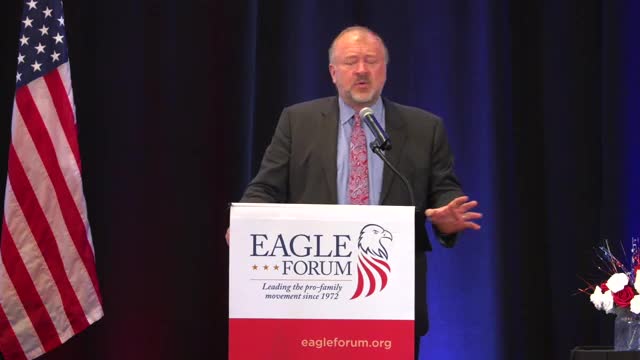Uncovering the Marxist Influence on US Intelligence
October 21, 2024 | National Eagle Forum, Utah Lobbyist / NGO, Utah Legislative Branch, Utah
This article was created by AI summarizing key points discussed. AI makes mistakes, so for full details and context, please refer to the video of the full meeting. Please report any errors so we can fix them. Report an error »

In a recent government meeting, discussions centered on the influence of academia on U.S. intelligence and legal systems, particularly focusing on the historical impact of the Frankfurt School and critical theory. Participants highlighted how many former CIA personnel transitioned into higher education and government roles, suggesting a significant ideological shift within these institutions.
The conversation traced back to the early 1930s when a group of German academics, fleeing the rise of Hitler, established themselves at Columbia University. This group, including notable figures like Theodore Adorno and Herbert Marcuse, is credited with developing critical theory, which has since permeated various academic disciplines, including law. By the 1980s, critical law theory had become a staple in law schools across the nation, leading many graduates to pursue careers in federal agencies such as the Justice Department and the FBI.
Concerns were raised about the current state of expertise in regional studies, particularly regarding Latin America, China, and Russia. The meeting underscored a perceived dominance of critical theorists in these academic programs, questioning the quality and reliability of the intelligence produced by analysts trained in this environment. Participants expressed alarm over the implications for U.S. foreign policy and national security, citing recent intelligence leaks and declassifications as evidence of declining standards.
Overall, the discussions reflected a broader concern about the ideological underpinnings of U.S. intelligence and the potential consequences of an academic landscape heavily influenced by critical theory.
The conversation traced back to the early 1930s when a group of German academics, fleeing the rise of Hitler, established themselves at Columbia University. This group, including notable figures like Theodore Adorno and Herbert Marcuse, is credited with developing critical theory, which has since permeated various academic disciplines, including law. By the 1980s, critical law theory had become a staple in law schools across the nation, leading many graduates to pursue careers in federal agencies such as the Justice Department and the FBI.
Concerns were raised about the current state of expertise in regional studies, particularly regarding Latin America, China, and Russia. The meeting underscored a perceived dominance of critical theorists in these academic programs, questioning the quality and reliability of the intelligence produced by analysts trained in this environment. Participants expressed alarm over the implications for U.S. foreign policy and national security, citing recent intelligence leaks and declassifications as evidence of declining standards.
Overall, the discussions reflected a broader concern about the ideological underpinnings of U.S. intelligence and the potential consequences of an academic landscape heavily influenced by critical theory.
View full meeting
This article is based on a recent meeting—watch the full video and explore the complete transcript for deeper insights into the discussion.
View full meeting

